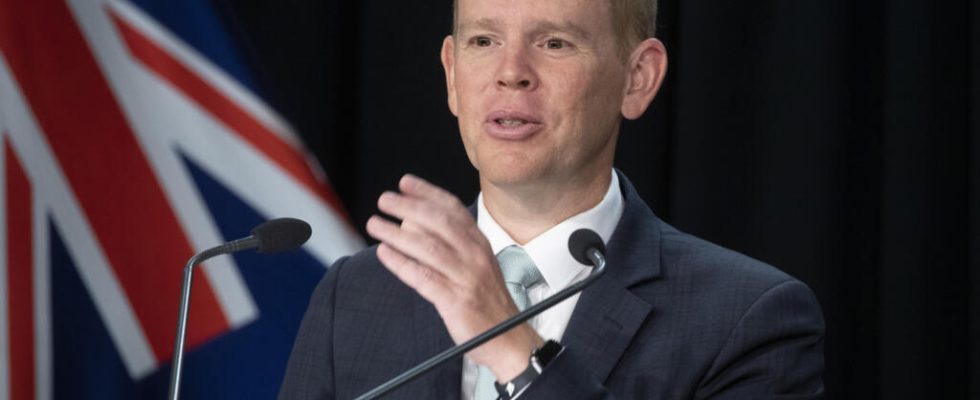This Saturday, October 14, the New Zealand Labor government, in difficulty since the surprise resignation of former Prime Minister Jacinda Ardern ten months ago, conceded its defeat in the legislative elections to a center-right coalition led by Chris Luxon.
2 mins
The National Party and the ACT Party, forming a center-right coalition, are projected to win 65 seats, more than a majority of the 120 seats in the New Zealand Parliament (South Pacific). The Labor Party, which obtained a landslide victory in the last legislative elections in 2020, is heading towards a severe defeat with a projection of 32 seats.
As a result, Chris Hipkins, who replaced Jacinda Ardern as Prime Minister less than a year ago, declared: not being in a position to form a government ” and congratulated Opposition Leader Chris Luxon. Labor has struggled to emerge from the shadow of the world-famous political star after his surprise resignation in January 2023. Christopher Luxon, leader of the National Party and former CEO of airline Air New Zealand, is widely tipped to succeed him.
Tax cut
The Labor Party had recently suffered a severe decline in the polls due to a succession of scandals within the government and the rise in food and fuel prices, with inflation expected to exceed 6% this year. Mr. Luxon promised a tax cut of around 280 euros per month for a middle-class family, saying he wanted to finance it through a tax on luxury homes owned by foreigners. The former business executive hopes to be able to come to power with the deputies of his National Party or by allying himself with the conservative ACT party. He may also have to seek support from New Zealand First, a small populist party led by 78-year-old Winston Peters.
The Labor Party has remained in power for six years, first led by the Prime Minister Jacinda Ardern. His center-left government was praised in particular for having quickly closed the borders in early 2020, protecting the country from the Covid-19 pandemic. THE short term by Chris Hipkins has been marked by several natural disasters – floods devastating and cyclone Gabrielle – as well as internal problems which forced it to undergo four reshuffles in a few months.
(With AFP)
Read alsoAukus: New Zealand invited to join the English-speaking pact in the Indo-Pacific
